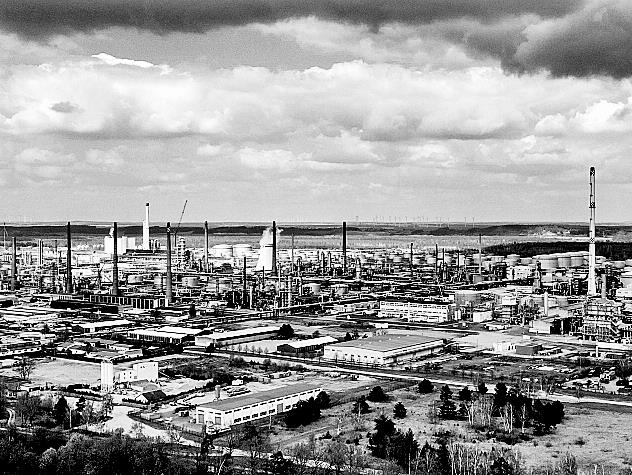Russian threats redraw the global energy map |
Algeria has long been a medium-stakes player in the global game of oil and gas exports, but the energy crisis in Europe has created an opening for the North African nation to up the ante. Italian Prime Minister Mario Draghi flew to Algiers just a few weeks ago to ink an agreement to boost natural gas imports from Algeria by 40% through an underused pipeline that runs beneath the Mediterranean Sea.
Other oil and gas exporters that were not previously front and center in the global energy conversation, such as Angola, Nigeria and the Republic of Congo, are also emerging as potential players in Europe's future. And European nations hurrying to unshackle themselves from Russian gas are turning to more reliable, but costly, liquefied natural gas providers such as Qatar and the United States.
The moves are part of a scramble in Europe to respond to the energy crisis prompted by Russia's invasion of Ukraine. Russian President Vladimir Putin in recent days lashed out at his foes in the West by cutting off natural gas supplies to Bulgaria and Poland for refusing to pay in rubles. Other large consumers of Russian gas, including Germany and Italy, have sought to reassure their citizens that they are seeking workarounds if Putin expands the cutoff as he has threatened.
But under almost every scenario, the next 18 months are going to be a harrowing time for Europe, as the impacts of high prices ripple around the world and governments struggle to power their factories, heat their homes and keep their electricity plants running. There are not enough alternatives in the near term to avoid major economic pain in the coming winter if Russia shuts down supply.
This month, for instance, the German central bank warned that the country's economy could shrink by 2% if the war persists.
"This is a very dangerous game that is playing out," said Edward Chow, an energy security scholar at the Center for Strategic and International Studies who previously worked in the industry for decades. "I don't know how this is supposed to end. It feels like it is going to end in a very bad place for both Western Europe and Russia."
"There is only so much [natural gas] to go around," Chow said. "No one is going to be able to produce more liquefied natural gas quickly no matter what fantasies governments want to spin."
What has transpired is a sudden global reordering of the energy markets stoked by an abrupt turnaround by Russia, which spent decades trying to use its generous oil and gas reserves to integrate into the world economy, said Daniel Yergin, an energy historian and vice chairman of S&P Global.
For now, Europe's gas market has become a patchwork. Italy can turn to Algeria, Bulgaria can turn to Greece, and Poland can pivot to a long planned expansion of a terminal for liquefied natural gas, or LNG, imports and a pipeline coming online from Norway.
"It's a dramatic, unexpected reordering of world energy.
Two months ago the Europeans could not possibly have imagined shutting the door on Russian energy and now it's only a question at this point of how long will it take," Yergin said. "And it's happening faster than would have been imagined possible only two months ago. Putin in eight weeks of war has destroyed what he spent 22 years building: integrating Russia into the world economy."
Germany, the economic engine of Europe, is particularly unprepared for the moment. More than half its supply of natural gas was coming from Russia before the invasion of Ukraine.
Germany has shrunk that down to 35%, but it is not well positioned to get to zero Russian gas anytime soon. It lacks infrastructure to import liquefied gas, and the nation's aggressively anti-nuclear posture has left it with just three reactors online; the other 14 were closed after the tsunami hit the Fukushima nuclear complex in Japan in 2011.
German Economy Minister Robert Habeck has said he expects his country would slide into recession without Russian gas. "I take this very seriously," he said. The country has managed to cut Russia's share of Germany's crude oil imports from 35% to 12%.
Instead of buying oil and natural gas from Russia — where production costs are very low and pipeline transportation cheap — Europe must turn in the immediate term to more expensive alternatives such as the United States, which until seven years ago had no gas export facilities at all. European companies must add on $1.50 per thousand cubic feet — anywhere from 30% to 50% of the cost of the gas itself — to get a tanker of liquefied natural gas to make the trip from the Gulf of Mexico to Europe.
Then the empty ship must make the return voyage, a total of 24 days in transit.
Where this all goes depends on the Kremlin's next moves. Russia is heavily reliant on gas and oil revenue, and it would inflict economic pain on itself by cutting Europe's major economies off from natural gas.



 RSS Feed
RSS Feed